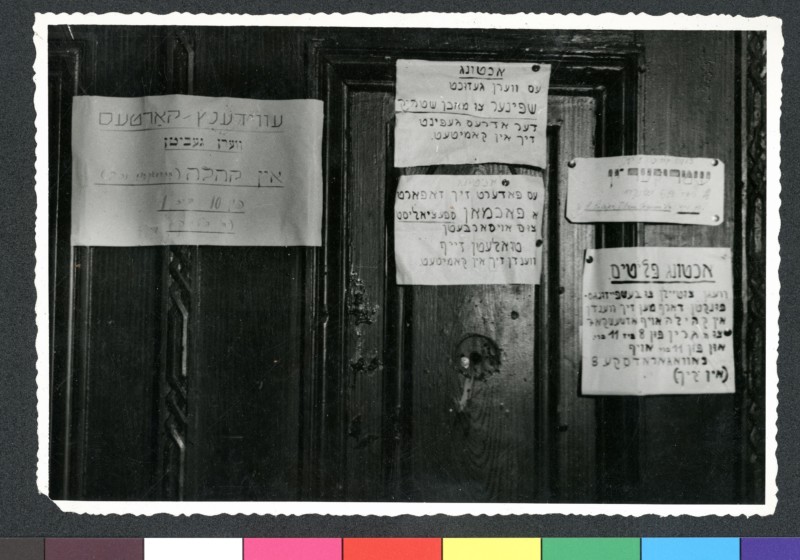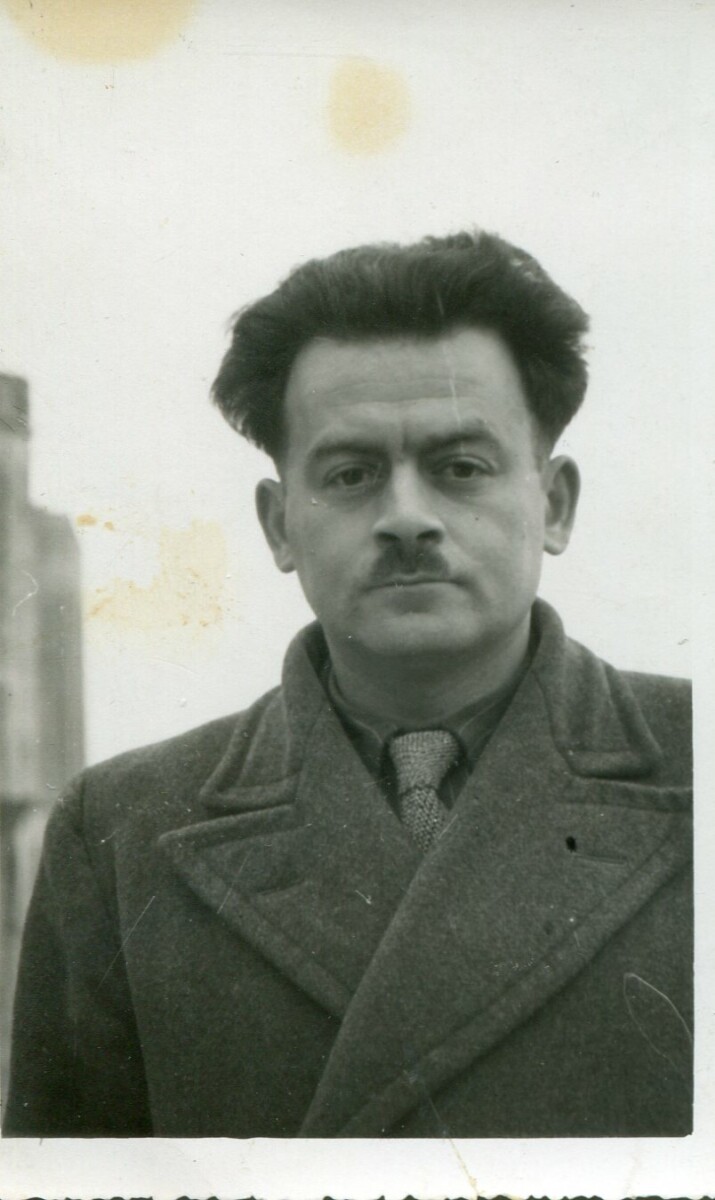 5
5
Self-help by Polish-Jewish refugees in Vilnius
Photo collection by the Jewish Joint Distribution Committee
Ich bekam dort carte blanche [Französisch für „weiße Karte“; bedeutet Handlungsfreiheit, Anm. WRA] für die Fälle, die [mir ganz dringend erschienen]. Und nicht nur Plätze, sondern auch Finanzierung. Also, unglaublich.
Und auf diese Weise verfügte ich über Möglichkeiten, die enorm waren. Und damit bekam ich also diesen Brief weg. Und ich wollte mich verlassen – ich wusste zwar, dass eine motorisierte Division der Nazis an der [spanischen] Grenze [war], das wusste ich genau – und ich wollte mich verlassen auf die Zusage, die ich durch Vermittlung von führenden englischen Leverleuten [Vermittler:innen] erhalten hatte, von englischen Botschaften, dass sie in einem solchen Fall im U-Boot uns mitnehmen würden. Die Zusage war da, aber ich war nicht sicher, was daraus geworden wäre.
Jedenfalls, die Arbeit, die ich machte, gab so unmittelbare Resultate und Wirkung. Das waren gewonnene Menschenleben.

There I received carte blanche [French for “white card”, meaning free hand, ed. WRA] for the cases [that seemed most urgent to me]. And not only free spots, but also funding. Unbelievable.
This way, I had enormous possibilities available to me. And with this, I was able to send the letter. And I wanted to rely on – although I knew that there was a motorized Nazi division at the [Spanish] border, I knew that for sure – and I wanted to rely on the promise I had received through communication by leading English leverpeople [middlemen, ed. WRA], by English embassies, that in such a case they would take us in a submarine. The promise was there, but I wasn’t sure what would have become of it.
In any case, the work that I did brought forth such immediate results and impact. Those were human lives that were saved.
Max Diamant (1903-1992) was a workers’ union activist, journalist and escape helper.
Diamant is born into a Jewish family in the Polish city of Łódź and grows up trilingual: Yiddish, Russian and German. His parents are members of the Bund, the Jewish socialist workers’ party. In 1919 Max goes to school in Mannheim, where he lives with relatives. Five years later he emigrates with his family to the Soviet Union, but returns to Mannheim in 1927, where he meets his wife Anni Nord and writes for the social democratic newspaper “Volksstimme”. He dedicates his journalistic work to the fight against the rising National Socialists: He writes numerous articles on the strengthening of the National Socialist structures, including among students at Heidelberg University, where he himself was a student.
Diamant is co-founder of the Socialist Workers Party of Germany (SAPD). As a politically active social democrat and journalist, Max Diamant is already exposed to persecution shortly after the National Socialist takeover. He flees to Strasbourg in 1933 with Anni Nord and his 11-year-old brother Arnold, and in 1934 he continues on to Paris. After arriving in Paris, Max Diamant works in the Paris headquarters of the SAP and is an editor of the anti-fascist newspaper “Neue Front” and publisher of the socialist magazine “Marxistische Tribüne”. In France, Diamant and Anni Nord are granted the status of recognized refugees and later live with their friends Paul Frölich and Rosi Wolfstein in a house in Vanves. When the Spanish Civil War breaks out in 1936, Max Diamant travels to Spain as a representative of the SAP party in support of the local Marxist Workers’ Party.
With the beginning of World War II in September 1939, however, Diamant and Nord are also declared “enemy aliens” by France and are temporarily interned in camps. They manage to escape to Montauban in Brittany and from there to Marseille. In Marseille, the couple joins the escape aid network Centre Américain de Secours (CAS) around the American Varian Fry. In September 1941, the threat caused by the war intensifies and Diamant goes on to Lisbon, where he continues his work as an escape agent. In this interview excerpt from 1983, he tells of this period, during which he was in contact with the Emergency Rescue Committee from Lisbon and organized visas and departure for people stranded in Portugal. From there he reaches Mexico in 1942. It is not until 1962 that he returns to Germany with his family. In Frankfurt he builds up a department called “Foreign Workers” within the trade union IG Metall with the goal of international networking of workers. Max Diamant dies in Frankfurt in 1992.
Max Diamant in an interview with Beatrix Herlemann 1983 about his time as an escape helper, from Doris Diamant’s private archive. Published here with kind permission of Doris Diamant.